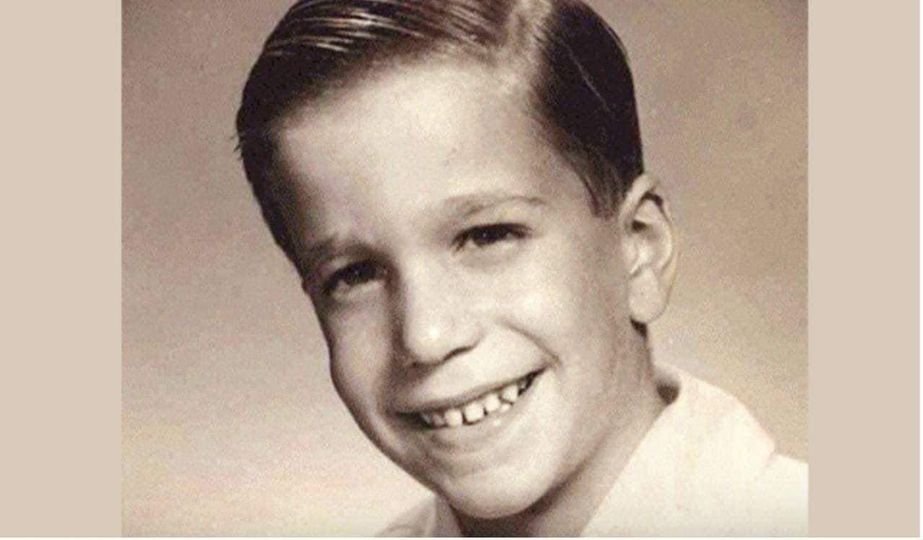Henry Winkler, best known for playing the beloved character Arthur “Fonzie” Fonzarelli on Happy Days, may seem like the embodiment of effortless cool, but his real-life story is anything but easy. Behind the smiles and the fame, Winkler faced a childhood and young adulthood marked by struggle, self-doubt, and an uphill battle against an undiagnosed learning disability. Despite these challenges, Winkler’s perseverance led him to become one of television’s most enduring and well-loved stars.

Winkler was born in Manhattan to German-Jewish immigrant parents who had fled the horrors of Nazi Germany. Growing up in the United States, Winkler encountered significant challenges in school that made life difficult and often demoralizing. Unbeknownst to him, he had dyslexia, a condition that significantly impacted his ability to read and learn. However, during the 1950s, dyslexia was largely misunderstood, and educational support for students with learning difficulties was practically nonexistent. As a result, Winkler’s struggles with reading led to misunderstandings and misconceptions about his intelligence.
His parents, who had high expectations for their son, were baffled by his inability to perform well academically. They believed his poor performance stemmed from laziness or lack of effort. They called him “dumb” and even used the harsh German phrase “Dummo Hund,” meaning “dumb dog.” Teachers and classmates also labeled him as slow, and the constant criticism took a toll on Winkler’s self-esteem. School was a miserable experience where he felt continually underestimated and even humiliated.
But despite these harsh labels and the emotional scars they caused, Winkler never let go of his dream of becoming an actor. He was captivated by the idea of performing, and this dream was the light that guided him through his darkest times. He faced numerous obstacles, but his passion never wavered. Winkler applied to 28 colleges, and though the rejections piled up, his determination eventually paid off when he gained admission to two schools. He ultimately decided to attend Emerson College, and later, the prestigious Yale School of Drama. At Yale, his talent became undeniable. He delivered an improvised Shakespearean monologue during an audition that revealed his natural gift for acting, setting the foundation for his future success.
Winkler’s big break came when he landed the role of “The Fonz” on Happy Days. The character, known for his leather jacket, smooth demeanor, and iconic “Ayyy,” quickly became a pop culture sensation. Winkler’s portrayal of Fonzie catapulted him to fame and made him a household name. But while his character was effortlessly cool and confident, Winkler was struggling behind the scenes with his dyslexia. He had difficulty reading scripts, which made preparing for his role a constant challenge. However, he adapted by listening to others read the lines aloud or memorizing scripts in unique ways. He used humor and charisma to cover up any gaps, convincing everyone around him that he had mastered his character.
At the height of his career, Winkler was even offered the lead role in Grease. Despite the potential for even more fame, he turned it down because he didn’t want to be typecast as the leather-wearing rebel forever. He was determined to prove he could do more, and he wanted his career to showcase his range as an actor.
A turning point in Winkler’s personal life came when he was 31 years old. His stepson, Jed, was being tested for dyslexia, and it was during this process that Winkler recognized his own struggles reflected in the diagnosis. Finally understanding that his learning difficulties were the result of dyslexia was a revelation. It allowed him to view his past not as a series of failures but as the consequence of a condition that had never been addressed. This newfound understanding gave him a sense of relief and helped him reconcile with the feelings of inadequacy that had haunted him for years.
After Happy Days ended, Winkler was faced with the challenge of redefining his career beyond his role as Fonzie. He took on diverse roles, determined to prove his versatility as an actor. He also ventured into producing, co-creating the action-adventure series MacGyver, which became a huge success. Though the transition from “The Fonz” to other characters and projects was not without its difficulties, Winkler never gave up. His talent, persistence, and hard work helped him carve out a long-lasting career in an industry known for its short attention span.
Today, Henry Winkler is not only known for his acting but also for his work as a children’s author and advocate for those with learning disabilities. He has co-authored a series of books about Hank Zipzer, a young boy with dyslexia. Through these books, Winkler has helped countless children understand that their struggles do not define their worth. His openness about his own experiences has provided inspiration and hope to many who face similar challenges.
Winkler’s journey from being labeled “dumb” to becoming one of the most beloved figures in entertainment is a powerful testament to the resilience of the human spirit. It reminds us all that the obstacles we face do not have to determine our destiny. With passion, determination, and a willingness to adapt, anything is possible. Henry Winkler’s story is proof that greatness can come from even the most unexpected places and that the path to success is often forged by overcoming the very challenges that once held us back.





